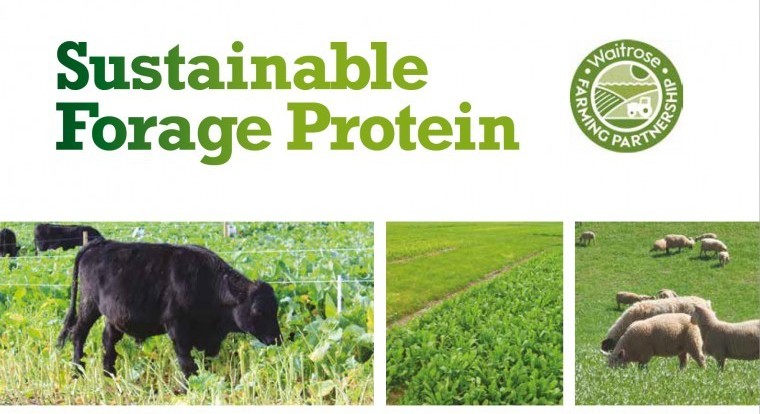A five-year programme of trials and demonstrations involving eight UK livestock farms and researchers from Aberystwyth and Bangor Universities has demonstrated significant benefits of integrating a range of forage protein crops into farming systems.
The Sustainable Forage Protein project, led by the Waitrose Farming Partnership and co-funded by Innovate UK, highlighted the potential for reducing costs of production and lowering carbon footprints from the use of a range of widely available crops.
Included in the project were red and white clovers, lucerne, perennial chicory, sainfoin, vetches and various grazing brassicas, with some capable of producing up to 14 tonnes of dry matter per hectare of 20% protein forage at costs of around 4p/kgDM.
“This has been a comprehensive programme involving dairy, beef and sheep farms in typical UK farming situations, with input from researchers at two of the best agricultural universities in the country,” comments Helen Mathieu from Germinal, who helped fund the project.
“All of the farms involved have reported tangible gains from the integration of forage protein crops into their systems, with reduced concentrate feeding, higher liveweight gains and greater continuity of production from forage amongst the main benefits.
“The project also carried out robust economic modelling on the impact of fully integrating homegrown forage protein crops into farming systems. This exercise revealed the scale of improvements possible, with financial performance being increased by 20% per kg of lamb, 29% per kg of beef and 10% per litre of milk produced.”
A detailed report on the project, ‘Sustainable Forage Protein – a guide to growing, managing and feeding forage protein’, is now available online at https://www.germinal.com/gb/products/sustainable-forage-protein




